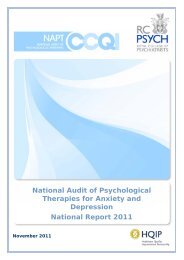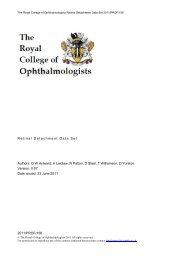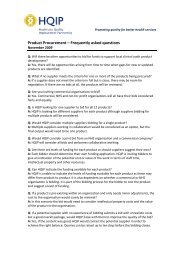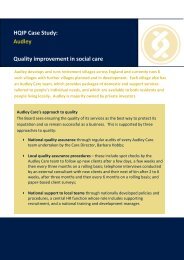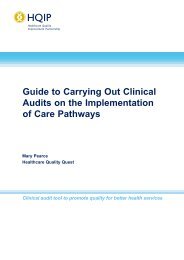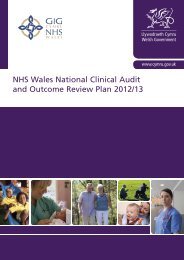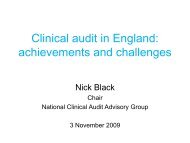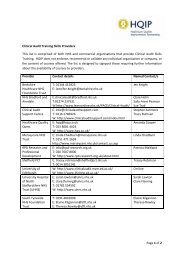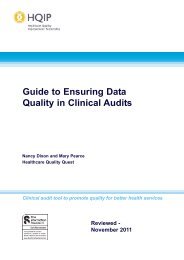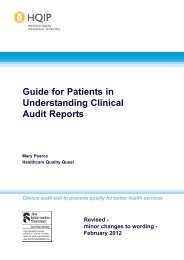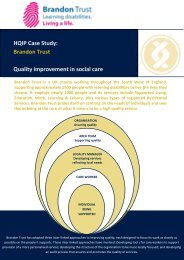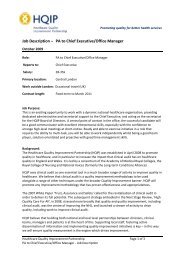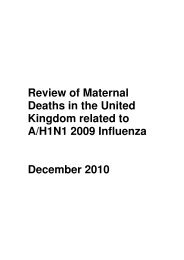Good Governance Handbook - HQIP
Good Governance Handbook - HQIP
Good Governance Handbook - HQIP
Create successful ePaper yourself
Turn your PDF publications into a flip-book with our unique Google optimized e-Paper software.
Neil <strong>Good</strong>win’s 10-point plan 48 is a straightforward method of checking whether an<br />
organisation is being proactive:<br />
1. Assess your position in terms of financial management, service delivery and<br />
strategic change. Where are you delivering and where are you struggling?<br />
What are your strengths and weaknesses and those of your key partners?<br />
2. Speed up system reform and re-engineering. Do not wait.<br />
3. Review your team’s capability and capacity. It needs to be match fit. If you<br />
have team weaknesses address them now.<br />
4. Assess the strength and depth of your inter-organisational relationships. The<br />
first meaningful conversation should not be about the impact of the economic<br />
downturn.<br />
5. Scenario plan for the future, exploring the impact of decreasing amounts of<br />
growth.<br />
6. Critically review your organisation’s priorities and develop Plan Bs for those<br />
you cannot put off. Start incorporating risk assessment in planning.<br />
7. Communicate. Be honest and realistic with staff because above all else they<br />
will be looking for leadership. Don’t withhold difficult messages. Staff will<br />
want the opportunity to contribute to solutions to wicked problems.<br />
8. Seek external help if necessary, but be very specific about the outcomes you<br />
want.<br />
9. Keep your nerve and maintain a balanced perspective. Do not panic. Plan<br />
ahead. Future-gazing is an activity that far too few boards spend time on.<br />
10. Be positive and optimistic. It is OK for leaders to say they do not always have<br />
the answers, but negative emotions are infectious in organisations.<br />
9. Conclusion<br />
<strong>Good</strong> governance needs to be at the heart of the current reforms of the NHS. It is vital<br />
for the development of a vibrant healthcare market that will continue to provide high<br />
quality healthcare. Those who are working to further improve existing healthcare<br />
organisations or developing the new CCGs and HWBs need to understand and apply<br />
the principles of good governance. It is important to think through how these<br />
principles should best be applied to their own local situation. The opportunities that<br />
come with getting the right governance system in place is that a useful balance will be<br />
struck between flexibility and proper risk management, and between control and<br />
freedom to innovate. Patients and local communities will be confident in the system,<br />
and governance will become proportionate, and an asset to an organisation rather<br />
than an irksome series of tasks. These principles, allied to carefully considering how<br />
your organisation can best use the body of good governance knowledge, will ensure<br />
higher quality healthcare and proper governance.<br />
48 http://www.goodwinhannah.co.uk<br />
www.good-governance.org.uk 38



